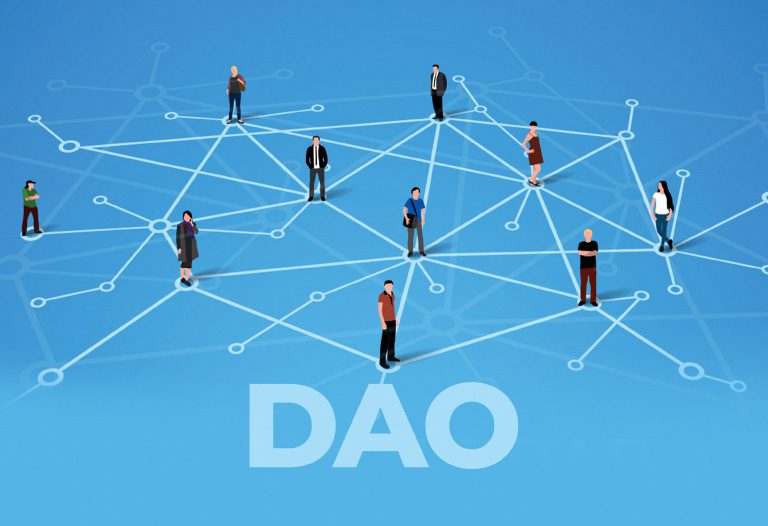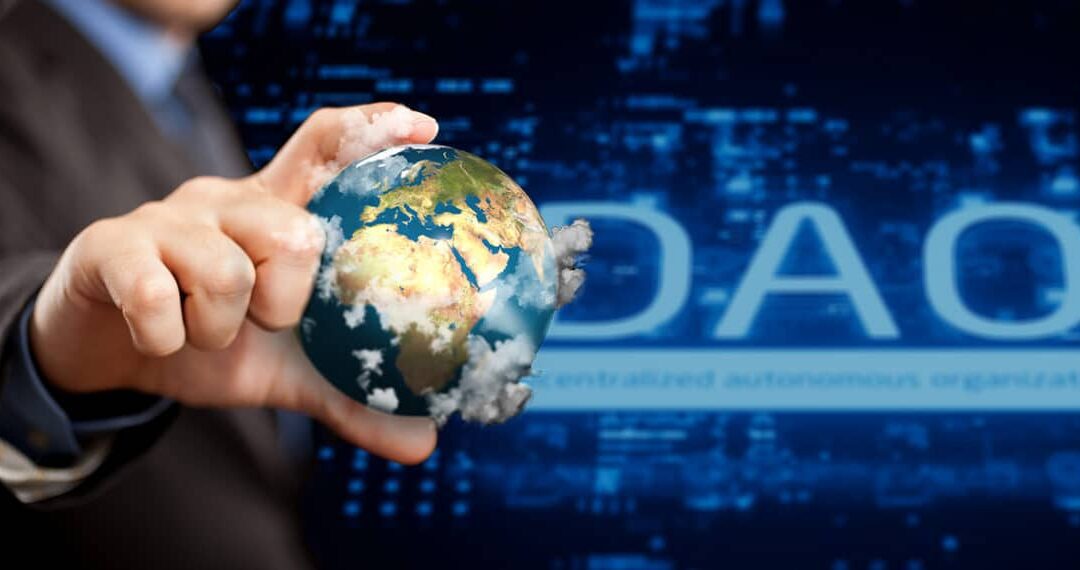The crypto ecosystem is made up of different sectors, which in turn have ramifications and there are many terms to deal with. In this article, we will discuss DAOs and review their most important features.
DAO stands for Decentralized Autonomous Organization. It is an organization that is run through rules encoded in computer programs called smart contracts.
What is DAO?
DAO (Dentalized Autonomous Organization) is a decentralized autonomous organization. It is an organization that works through rules encoded in computer programs known as intelligent contracts (Smart Contracts).
The transaction records of a DAO are kept and maintained in a blockchain. Keep in mind, there are several examples of this business model and the legal status of these organizations is not completely clear yet.
One of the most famous examples of DAOs is “The DAO” – a DAO for venture capital funds – which was launched with $150 million in crowdfunding in June 2016, but was promptly hacked and robbed of $50 million in cryptocurrency. The hack was reversed a few weeks later and the money was fully recovered, thanks to a version of the Ethereum Blockchain. This decentralized ransom was made possible by a majority vote in the Blockchain hash rate.
How does a DAO work?
DAOs attempt to contribute to the Blockchain by providing a secure digital ledger that tracks financial interactions over the Internet, made tamper-proof by reliable time stamping and distributed database dissemination.
Each individual participating in a DAO platform would control their identity and personal data
Its purpose is to eliminate the need to involve an external entity agreed by both parties (trusted third party) in each financial transaction, and therefore, the transaction is much simpler. The costs of both a blockchain-enabled transaction can be lower by eliminating the trusted third party. The data included in the Blockchain could replace public documents such as shares and titles, as long as the regulatory bodies of the countries allow it.

Vitalik Buterin, co-founder of Ethereum, proposed that once a DAO is up and running, it should be autonomous and able to function without the need for human supervision, as long as ready contracts are supported by a Turing-complete platform.
Features of a DAO
Governance
In the world of DAOs, governance is understood as the inclusion of all members in decision making; a horizontal government structure is sought. This is achieved through tokens that represent your participation in the organization. These are known as governance tokens.
These tokens have an economic value and generally the way to obtain them is by buying them in some exchange or receiving them as a reward for contributions you make to the organization. The more tokens a person has, it is understood that they are more involved in the project and, therefore, they will have more voting power.
Shared assets
The DAOs collect and allocate resources to meet their goals just like any other company or organization, the peculiarity of the DAOs is that the capital that is gathered belongs to the entire community and it is the same community that through governance tokens cast their vote and decide what to do with that capital.
Minimal barriers to entry
The only barrier to entry to being a member of a DAO is usually owning governance tokens. Depending on the stage of the organization, the way to obtain these tokens can change. Sometimes you have to buy them on an exchange, other times you can get them in exchange for giving something of value to the organization, and other times, all you need is the desire to participate.
It is necessary to mention that the life stage of a DAO is important because certain organizations after a certain time decide to close the entrance to new members.
Community property
The entire DAO belongs to the community that helps build it. All those who support the project and decide to invest in it, either money or time to achieve the mission that gave rise to the organization, are rewarded with a percentage of ownership of the project.
This property is reflected in the DAO’s own tokens whose value is defined in the market and can be exchanged for other cryptocurrencies.
